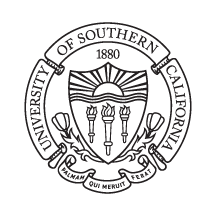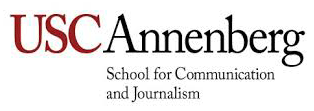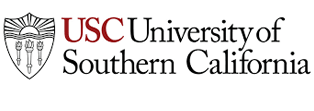- » Focus and Scope
- » Section Policies
- » Peer Review Process
- » Publication Frequency
- » Open Access Policy
- » USC Annenberg Press
- » Indexing Sources for ITID
- » Code of Ethics
- » Prior Publication Policy
- » Author Guidelines
- » Submission Preparation Checklist
Focus and Scope
Information Technologies & International Development focuses on the intersection of information and communication technologies (ICT) with economic and social development. It is a peer-reviewed, international, multidisciplinary quarterly designed for researchers and practitioners from the engineering and social sciences, technologists, policy makers, and development specialists. In addition to peer-reviewed original research, ITID publishes notes, letters, and reports that respond to previously published articles; summaries of conferences, workshops, and other relevant meetings; reviews of new books of interest to the field; and overviews of emerging research areas and new ideas. The Editors-in-Chief will consider manuscripts that address ICT and development with the following foci:
- Policy and regulatory issues
- Engineering innovations
- Theoretical and conceptual issues
- Access and accessibility
- Human-computer interaction, interface, and design
- Multi-cultural, multi-lingual, and multi-literate systems
- Financing, business models, and sustainability
- Training and capacity building
- Infrastructure
- Humanistic and social development impacts
- Health and wellness systems
- Learning and education systems
- Income poverty, economic development, and e-commerce
- E-government, e-governance, and digital democracy
- Highly localized systems and content
- Social and cultural surveys and studies
- Geographic and country reviews
- Digital divide issues
- The economics of information
- Gender inequalities
Information Technologies & International Development (ITID) is proud to be indexed in the following indexing sources:
- EBSCOhost (EBSCO)
- Genamics Journal Seek (GJS)
- International Development Informatics Association (IDIA)
- International Network for Post Graduate Students in the Area of ICT4D (IPID)
- ProQuest in LISA (PROQ)
- ERIH Plus
- International Institute of Organized Research (I2OR)
Section Policies
Research Articles
Research Reports
Special Sections
Forum
Book Reviews
Research Article
From the Special Issue Editors
Tributes
Feature
Maximum 6,000 words all-inclusive
Peer Review Process
Each manuscript will be reviewed by the editorial staff, who will decide if the piece should undergo further review. For each manuscript that is selected to undergo external peer review, we rely on our extensive reviewer database. We select two to four reviewers, based on their subject expertise and general knowledge of the field; many have previously reviewed manuscripts for ITID. The external peer review process is blind. This process usually takes from three to six weeks and sometimes longer as we wait on our busy referees to respond to our request.
Publication Frequency
The journal is published on an ongoing basis.
Open Access Policy
Information Technologies & International Development is available for free online from this site. You can return to the homepage here to browse the current and past issues.
USC Annenberg Press
Indexing Sources for ITID
Information Technologies & International Development (ITID) is proud to be indexed in the following indexing sources:
- EBSCOhost (EBSCO)
- Genamics Journal Seek (GJS)
- International Development Informatics Association (IDIA)
- International Network for Post Graduate Students in the Area of ICT4D (IPID)
- ProQuest in LISA (PROQ)
- ERIH PLUS
- International Institute of Organized Research (I2OR)
- EconBib
Code of Ethics
Information Technologies & International Development aspires to select and publish, through peer review, the highest quality research in communication studies. In order to achieve this goal, the entire peer review and publication process should be thorough, objective and fair. Journal reputation depends heavily on the trust by all stakeholders in the fairness of the peer review and publication process. An important role of the publisher is to support the extensive efforts of the journal editors, and often unsung volunteer work undertaken by peer reviewers in maintaining the integrity of the scholarly record. It is a tribute to scholarly practice that the system works well and problems are comparatively rare. The publisher has a supporting, investing and nurturing role in the scholarly communication process and is also ultimately responsible for ensuring that best practices are followed. ITID subscribes to the principles of the Committee on Publication Ethics (COPE). See http://publicationethics.org
Prior Publication Policy
ITID does not accept papers published elsewhere in archival form or that are under review at another journal. However, we do consider papers that represent updated or substantially revised work that has appeared in preliminary form elsewhere. If you do submit such a paper, please send a note to editor@itidjournal.org that supplies an attachment or a link to the previous paper, explains the nature of the prior publication, and outlines the changes made to the new submission.
Author Guidelines
1) Research article should range between 6,000 and a maximum 8,900 words (all-inclusive).
2) An abstract and keywords are required for article submission.
3) Submissions should be APA-6 compliant.
4) Papers must be anonymized including in "Properties."
5) Papers should be in Times Roman 12 pt., single-column.
There is no publication charge to publish with ITID.
Submission Preparation Checklist
As part of the submission process, authors are required to comply with the following checklist:
- The submission has not been previously published, nor is it before another journal for publication consideration (or an explanation has been provided in "Comments to the Editor").
- The submission file is in Microsoft Word, or RTF document file format and should not exceed 8,900 words (all-inclusive).
- All URL addresses in the text are activated and ready to click.
- The text is double-spaced; uses a 12-point font (Times Roman; employs italics, rather than underlining (except with URL addresses); and all illustrations, figures, and tables are placed within the text at the appropriate reference points, rather than at the end of the article.
- The text adheres to the stylistic and bibliographic requirements outlined in the Author Guidelines, which is found in "About the Journal."
The text has had the authors' names removed. If an author is cited, "Author" and year are used in the bibliography and footnotes, instead of author's name, paper title, etc. The author's name has also been removed from the document's Properties, which in Microsoft Word is found in the File menu.
Ensure that your submission is anonymized (including in "Properties). To anonymize your manuscript for double blind peer review, follow these instructions.
Ensure there is no author information in the metadata of any of the files submitted (e.g., in Word see: http://bit.ly/201IdX7; in Adobe see: http://adobe.ly/1NJEtR7). Remove acknowledgments, grant funding, or other author-related information from the manuscript. Check the figures for appearance of any author names.
When referring to your own work within the paper, consider the likelihood of someone being able to identify you from the citation. Reduce that possibility by:
a) Avoiding the first-person in association with any citation (e.g., replace “As we have shown (Jones, 2012) …” with “As Jones (2012) has shown…”).
b) Remove references to your own unpublished / in press work except where essential; where such work is cited, delete the author’s name (i.e., cite as “Author, in press”) and remove from the reference list.
c) Avoid references that by implication identify the author (e.g., delete “This work is part of a larger grant project (Ibrahim, 2013, 2014)”).
d) Avoid excessive self-citation—typically, articles citing “Ramirez (2004, 2005, 2007, 2012, 2014) …” are by Ramirez!
e) More generally, use common sense. Consider whether your writing has the potential to identify you to a reader who is an expert in the field; if it does, think about sensible ways to reduce that possibility.
- Research articles should range between 6,000 - 8.900 words (including the abstract, images with captions, footnotes, references, and appendices, if any - ALL INCLUSIVE). Book reviews should range between 1,200 - 1,800 words. Forum articles should range between 3,500 - 6,000 words.
- Ensure that the author's name has also been removed from the document's Properties, which is found in the Microsoft Word File menu. SEE #6.
- Any endnotes should be converted to footnotes.
- Authors must include their profile, including affiliation and position, when completing the bio information.
- All articles should include an abstract of no more than 150 words and keywords.
- All articles must follow the most current APA style guide (Publication Manual of the American Psychological Association).
- All articles must include a bibliography at the conclusion of their manuscript that conforms to the most current APA style.
- All spellings must be rendered in American English. To change British or Commonwealth spellings to their American equivalents, please see the Merriam-Webster Unabridged Dictionary.
- Only one submission by an author will be considered at a time.











